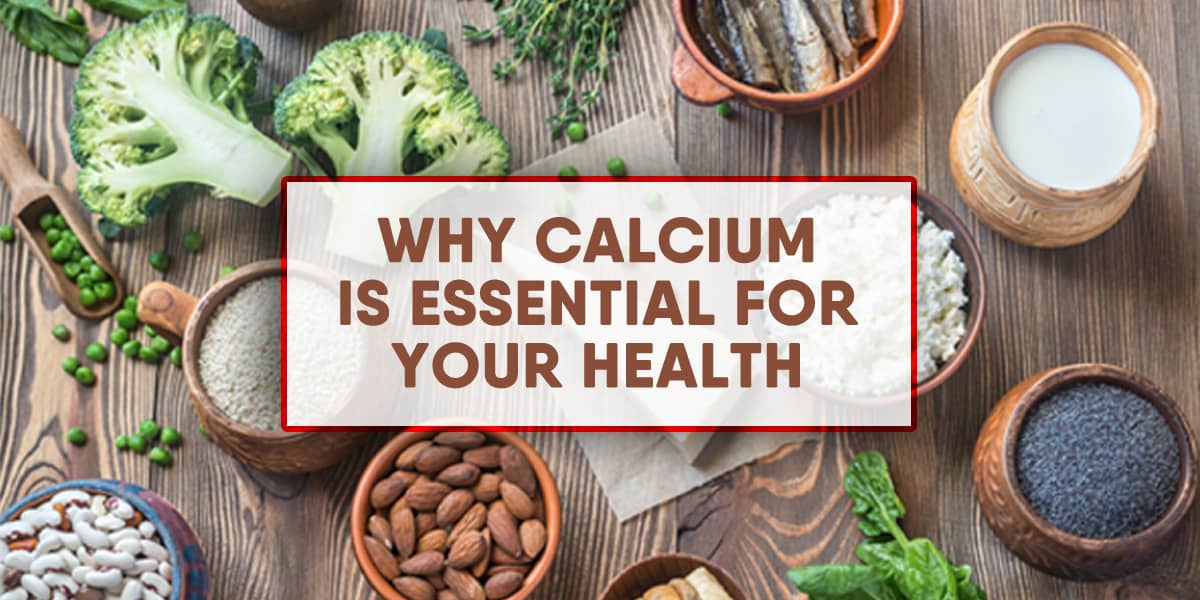Research revealed that most women aren’t getting enough bone-building calcium.
It is a vital mineral that keeps bones and teeth strong. A deficiency in calcium intake among women is resulting in diminished bone density, and early bone loss, especially in post-menopausal age.
Menopause is a very crucial phase in a woman’s life. From puberty to motherhood, a woman’s body undergoes tectonic change. This metamorphosis ceases with the most vital change during menopause. During this strenuous stage of menopause, a woman’s body demands an increased amount of calcium. The decline in the hormone estrogen can cause the bones to thin down and result in chronic conditions like weakened bones or osteoporosis.
Why is calcium so important?
Calcium is an essential bodybuilding element. It not only plays a role in bone formation and teeth strengthening but also in maintaining heart health. Further, it helps the body maintain healthy blood vessels, regulate blood pressure, and prevent insulin resistance. Though this vital mineral is crucial at all phases of life, its demand increases tremendously during menopause.
Adequate intake of calcium in menopause years has been shown to reduce bone loss. It also reduces the chance of fractures in women older than age 60. During menopause, there is a significant drop in the production of the estrogen hormone. This hormone estrogen plays a vital role as a protector of the bones. In its absence, calcium acts as the protector.
The loss of density in the bones is compensated by calcium. It aids in supporting bone health, and promotes overall health. There’s also good evidence that diets high in calcium are associated with reduced rates of being overweight. Many studies have found that cited that low intake results in weight gain.
Where can you find calcium?
Green leafy vegetables are the powerhouse of calcium. Other important sources include milk, yogurt, and other dairy products. Beans, lentils, almonds, figs, oranges, sesame seeds, oatmeal, broccoli, okra, etc. are also good sources.
Studies have shown that women should intake 1,000 milligrams (mg) a day for women below 50 and 1,200 mg for women over 50. And this amount cannot be fulfilled every day with diet. Therefore, just leafy vegetables won’t work. Hence, doctors recommend supplements (500 mg/day) to fulfill the daily dietary recommendation of the body.
But women often argue that they are already having a healthy diet. That they drink their milk and eat their veggies. Another common reasoning that comes from many is that their ancestors never took any supplements or tablets yet they lived life at the peak of their health. Then why shall we take supplements?
Myths
- Only elderly woman needs it.
- Only osteoporosis patients need calcium.
- Forgetting calcium supplements is no big deal.
- Eating dairy and taking fruits and veggies can prevent osteoporosis.
- You can never get too much calcium!
Busting the Myths
First of all, our ancestor’s environment was much safer, much different than it is today. Their physical activities, hunger levels, their appetite, and lifestyle were much more effective than ours. Not to forget about sleep! They slept as the sunset and woke up with the first rays of the sun.
Second, let’s check the Calcium content in food! Calcium is found in many vegetables and fruits but is not so high. Even the other sources offer the nutrient but they fail to fulfill the daily requirement. Of course, including lots of fruits, vegetables, dairy, and nuts is very essential but can that really ensure the fulfillment of your dietary requirement?
Taking 800 mg /day to 1200 mg/day is very essential but one must also take care not to take it in excess. Calcium intake over 1500-2000mg/day may lead to calcium toxicity and hypercalcemia.
Your Takeaway!
Calcium intake is highly essential for the proper functioning of our body. If you miss out on the recommended amount in the diet, then the body will take it from the skeleton and teeth, which will result in the weakening of bones. Hence, taking supplements is recommended on a doctor’s advice as per the suggested dose.
Also Read:


10 comments
Thank you for sharing the valuable information Doctor🙂🙏🏼
THANKS FOR READING
Thank you so much for posting such an informative blog on the importance of calcium intake. Since I started calcium PRESCRIBED BY YOU I don’t experience pain in my calf muscles.
THANK YOU
Very informative article and actually an eye opener for all ladies who think that their diet and activities are protecting them from Calcium deficiency. Till menopause these things work well but once we hit that age everything changes.
Looking forward for more such eye openers. Thanks.
YOU ARE RIGHT. THANK YOU
Thank you Dr for addressing a major issue in women, thank you 🙏
thank you madam
[…] Are you getting enough calcium? […]
[…] but also, can influence the progression of cardiovascular diseases, respiratory diseases, diabetes, osteoporosis, […]